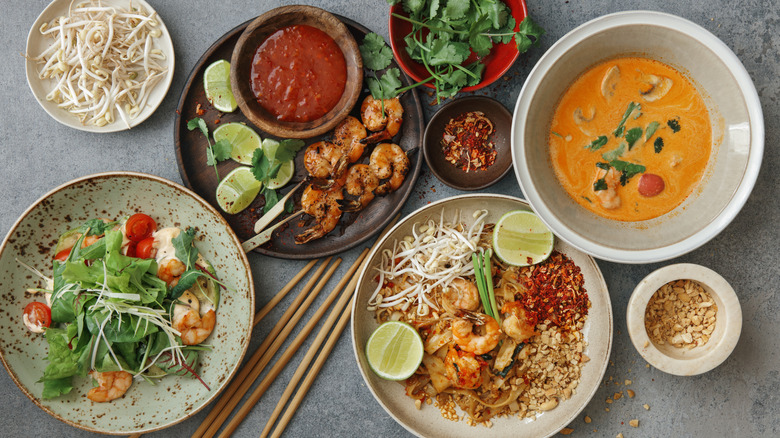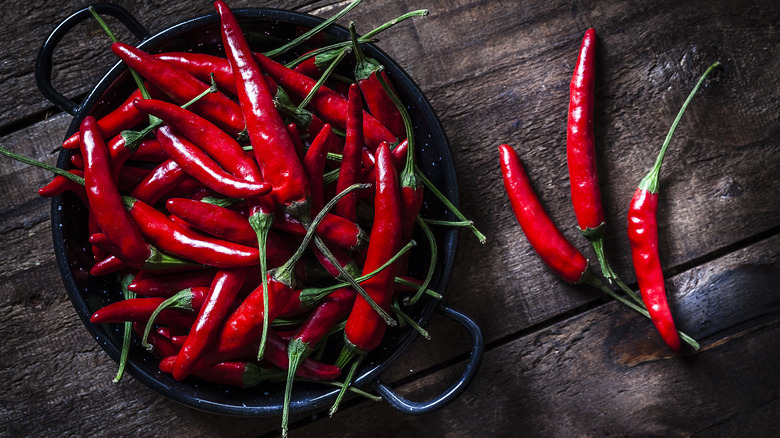Why It Actually Makes Sense To Eat Spicy Food When It's Hot Outside
You wouldn't think that eating a meal of fiery Sichuan Dan Dan noodles with numbing oil or warming tom yum soup would cool you down when it's hellishly hot outside, but it's true. Take a look at where some of the spiciest foods come from to see that they're usually the warmest places on the planet. Curries, salsas, and jerks are all enjoyed in places like Thailand, Mexico, and Jamaica, where residents are seemingly unfazed by both the spicy food and the high temperatures. The answer lies not in a tolerance for either spice or heat, but rather a physiological quirk of the human body — sweating.
Spicy food triggers reactions in the human body, from an increased heart rate to a feeling that your tongue is burning. It also triggers sweating, which is your body's way of cooling off. The sweat on our skin evaporates, leaving us cooler — we humans don't have any other way of lowering our internal temperature. Spicy foods make you sweat from your face, neck, and scalp which all act to make you feel cooler in hot temperatures. For the few minutes you feel like your mouth is on fire, your body starts the process of cooling — it's the same reason your nose runs when you eat spicy food. While it may seem counterintuitive to eat a spicy curry when it's a scorcher outside, it's something cultures in hot locations figured out long ago in order to adapt to the higher temperatures.
Spicy foods trick your brain into activating your body's temperature regulation
Most of the spicy food we enjoy is pepper- and chile-based. The heat we feel when we eat habanero or poblano comes from capsaicin, a compound found in foods from the Capsicum family – which includes bell peppers, jalapeños, and cayenne peppers to name a few. When we eat something containing capsaicin it causes a chain reaction by binding to receptors on our tongues and in our mouths, which triggers the fight-or-flight stress response in our brains, which opens the floodgates of sweat to release the built-up heat.
It's not just the Capsicum family that triggers this response in the brain. Foods like peppercorns, mustard seed, horseradish, garlic, and ginger can make you sweat, even though they don't contain capsaicin. Some consider garlic "spicy" because it triggers the same receptors in your mouth that a pepper does, but the active chemical is different. The effect is still the same though, and triggers the sweat response.
If you're looking to cool down but not suffer the consequences of eating a fiery curry or salsa, you can also look into adding some pineapple, cucumber, or watermelon to your next heatwave menu options. Just make sure you avoid eating certain foods during a heatwave, like alcohol and red meat, as they raise your internal temperature and can cause dehydration.

